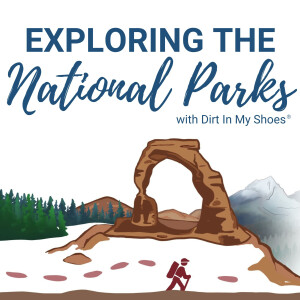
Temperatures are higher than normal for much of the planet this week—and while the heat wave in Europe has had much of the attention, over 100 million Americans in 28 states were under extreme heat advisories this week.
Yasmin Tayag, a freelance science editor and writer based in New York, joins Ira to talk about the global heat wave and other stories from the week in science—including the president’s COVID diagnosis, an uptick in drug-resistant infections, and the question of whether previously uninfected people are “sitting ducks” when it comes to new COVID variants. They’ll also tackle some lighter topics, including new studies of how an elephant’s trunk works, and the genetics of how penguins came to prefer colder climates.
Genetics Suggest Indigenous People Arrived In Americas Earlier Than Some ThoughtFor years, grade school textbooks have told the story of how the Americas were populated by people crossing a land bridge from Asia and migrating in the safe havens between glaciers. In this version of history, its inhabitants arrived 13,000 years ago.
But that story needs an update, thanks to both new archaeological evidence, and the increasingly robust tools of genetic analysis—ancient genomes extracted from millennia-old human remains suggest a much longer history of people in the Americas, perhaps by thousands more years, and aligns with the oral histories of Native Americans and other Indigenous peoples. The genetic evidence also brings up new mysteries, including evidence of some groups of ancient peoples with no direct descendants today.
Producer Christie Taylor talks to University of Kansas anthropological geneticist Jennifer Raff, the author of Origin: A Genetic History of the Americas, about the growing evidence for the need to revise the history of the First Peoples. Plus, why researchers seeking to tell that story need to work directly with contemporary tribes to ensure that exploitative scientific practices of the past are not repeated.
Can Genetic Modification Help Plants Survive Climate Change?Temperatures around the world are reaching all-time highs as major heat waves cause extreme weather and climate events. Earlier this year, temperatures in India and Pakistan soared to 120 degrees Fahrenheit, followed by months of unrelenting, unseasonably hot weather. A brutal heat wave is now moving across Europe, fueling devastating wildfires, and producing Britain’s highest temperature on record. Propelled by climate change, future heat waves promise to increase in frequency and intensity, posing a dangerous threat to human health.
But people aren’t the only ones at risk. Many plants—including essential food crops—struggle to survive as temperatures rise. When conditions heat up, a plant’s immune system can shut down, eliminating its defense mechanism. With key agricultural regions already experiencing record highs, global food supplies face potentially devastating consequences.
Ira talks to Sheng-Yang He about his research published in Nature last month that offers a potential solution—using gene editing to strengthen a plant’s defenses against increased temperatures.
More Episodes
683: To Get Ready For Mars, NASA Studies How The Body Changes In Space
 2024-01-11
2024-01-11
682: Science Journalism Is Shrinking–Along With Public Trust In Science
 2024-01-10
2024-01-10
680: (Part 2) Endangered Species Act At 50: Orchids And Red Wolves
 2024-01-09
2024-01-09
679: (Part 1) Endangered Species Act at 50: Hawaiian Land Snails
 2024-01-08
2024-01-08
681: Solar Activity Flares Up In 2024 | Underground Hydrogen Reserves And Clean Energy
 2024-01-05
2024-01-05
678: SciFri Reads ‘The Alchemy Of Us’
 2024-01-04
2024-01-04
677: SciFri Reads ‘The Kaiju Preservation Society’
 2024-01-03
2024-01-03
676: Star Trek’s Science Advisor Reveals The Real Astrophysics On Screen
 2024-01-02
2024-01-02
675: A Mathematician Asks ‘Is Math Real?’
 2024-01-01
2024-01-01
674: Unmasking Owls’ Mysteries | Why It Feels So Good To Eat Chocolate
 2023-12-29
2023-12-29
673: SciFri Reads ‘The Best American Science and Nature Writing 2023’
 2023-12-28
2023-12-28
672: The Unseen World Of Seaweeds | Should 'Dark Fungi' Species Get Names?
 2023-12-27
2023-12-27
672: How 'Panda Diplomacy' Led To Conservation Success
 2023-12-26
2023-12-26
671: Music’s Emotional Power Can Shape Memories—And Your Perception Of Time
 2023-12-25
2023-12-25
670: Top Science News Stories of 2023 | Solar Panels In Historic Cape Cod
 2023-12-22
2023-12-22
669: Pennsylvania Drug Laws May Limit Syringe Services | These Romance Novels Represent Black Women In Science
 2023-12-21
2023-12-21
668: Flame Retardant From Cocoa Pod Husks | The Oozy Physics Of Oobleck
 2023-12-20
2023-12-20
667: The Military’s Carbon Footprint Is A Hidden Cost Of Defense
 2023-12-19
2023-12-19
666: High Energy Cosmic Ray Detected | These Penguins Are The Masters Of Microsleeping
 2023-12-18
2023-12-18
665: COP28 Climate Conference Ends | Why Are Some People Affected By Seasonal Affective Disorder?
 2023-12-15
2023-12-15
Create your
podcast in
minutes
- Full-featured podcast site
- Unlimited storage and bandwidth
- Comprehensive podcast stats
- Distribute to Apple Podcasts, Spotify, and more
- Make money with your podcast
It is Free
You may also like

Exploring the National Parks


The Covert Narcissism Podcast


Greece Travel Secrets Podcast


Stuff You Should Know


Timcast IRL

- Privacy Policy
- Cookie Policy
- Terms of Use
- Consent Preferences
- Copyright © 2015-2024 Podbean.com



 iOS
iOS Android
Android